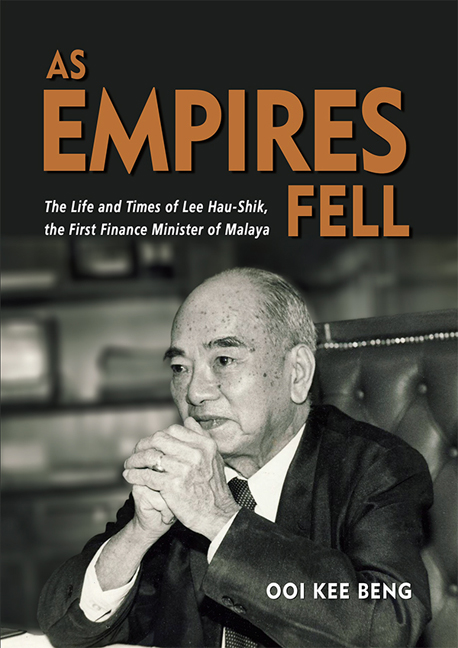Chapter 4 - Finding Refuge in India
Published online by Cambridge University Press: 24 November 2020
Summary
In the months immediately following the collapse of British administration in Malaya, widespread American criticism of Britain's alleged “bungling imperialism” induced the Colonial Office to press for the formulation of an official post-war reconstruction policy, in order to forestall probable demands from Washington and Chungking for the dismantling of British colonial rule in Southeast Asia.
—C.M. Turnbull1IN THE CHAOS of the times, the future of East Asia was apparently being fought over between its two political giants, China and Japan. To what extent the colonialists could return in triumph to regain their stature and power was a grave matter for consideration, especially for the peoples they had ruled. For most, nationalism was as yet just an interesting but impractical thought rather than an ideological conviction.
For Malayan Chinese, two stances were prominent and possible at this time. Does the post-war future for them lie with China, or with the European colonialists, damaged though their reputation and their right to rule had been by the Japanese? Japan's Greater East Asia Co-Prosperity Sphere was not acceptable to them, and the idea of small nation states growing out of the disparate colonies was for most as yet a fantastical myth.
Surviving this period of global conflict and planning loosely for the time of fragile peace that must surely follow occupied the minds of displaced persons such as Hau-Shik. The active and influential person that he was, Hau-Shik's sentiments at this time was more clearly China-oriented, and it was towards Chungking that his thoughts initially went. There was no clear reason why the Japanese would not continue their expansion into India, and therefore inland China seemed at this point a safe place to be.
Generalissimo Chiang Kai-shek happened to be in Calcutta on the final leg of his visit to India when the Malayan evacuees arrived. Serendipitously, the two men met for the first time.
A short note hastily typed on 27 April 1942 by Hau-Shik to a friend he called Martin, apparently someone he played golf with in Kuala Lumpur, provides some scant details on the crossing from Singapore to Calcutta. “Martin” was Major J.M. Bell, whom he learned had successfully escaped via the Riau Islands and Sumatra to Bombay, and who was now based in Colombo.
- Type
- Chapter
- Information
- As Empires FellThe Life and Times of Lee Hau-Shik, the First Finance Minister of Malaya, pp. 80 - 114Publisher: ISEAS–Yusof Ishak InstitutePrint publication year: 2020

